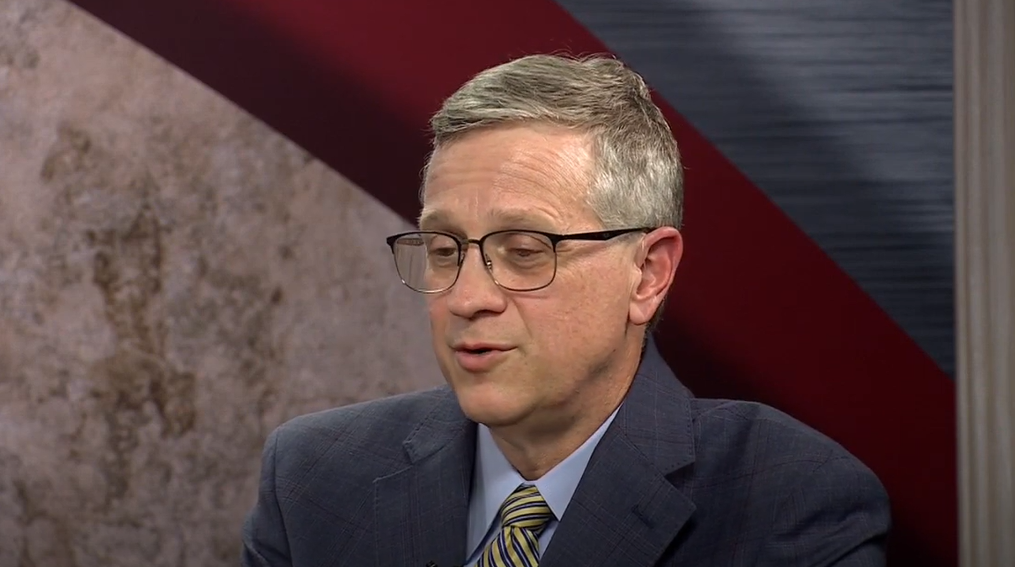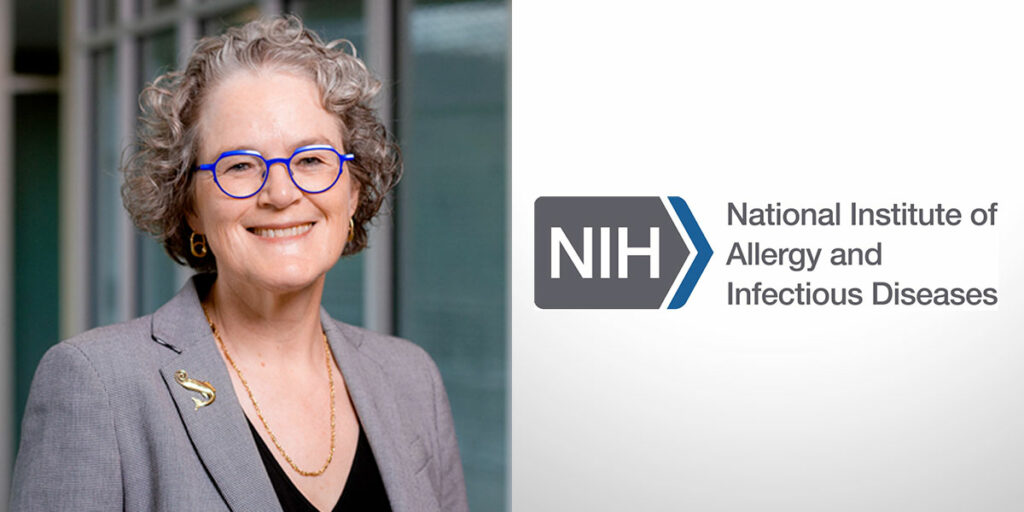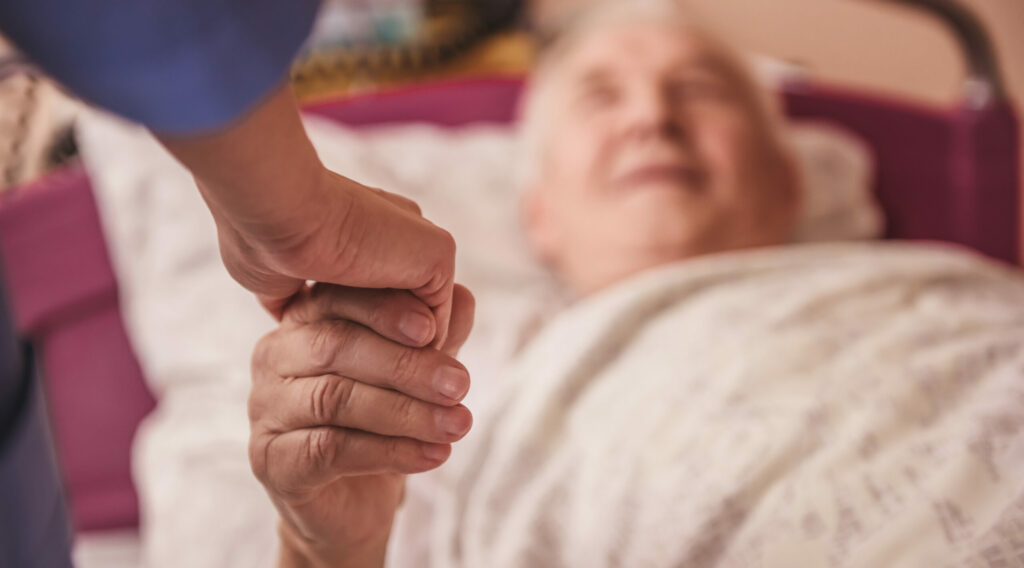Inside a high-tech laboratory at Southern Research, a team led by Robert Bostwick, Ph.D., is screening vast numbers of compound samples to identify agents that could become a new treatment for COVID-19, the disease caused by the novel coronavirus.
Bostwick is director of Southern Research’s state-of-the-art High-Throughput Screening (HTS) Center, which features advanced robotic equipment and a collection of around 750,000 compounds for rapid, accurate testing.
Since 2006, the HTS Center has screened an average of 3.3 million compounds each year in biochemical, bacterial, cell-based, and antiviral assays. The center’s scientists have been working on coronaviruses for the past six years.
Since the pandemic began earlier this year, Bostwick’s team has screened compound samples for pharmaceutical companies, biotech firms and key government agencies. It’s also screened FDA-approved drugs to see if they show potential activity against the pathogen.
Bostwick, who joined the Birmingham-based research organization in 2013 after working for AstraZeneca and other bioscience companies, talks about the capabilities of the HTS Center and how his team is making a contribution to the fight against COVID-19.
What is the goal of Southern Research’s screening program as it relates to the novel coronavirus?
The goal is to discover drugs that can be used as therapeutic treatments for COVID-19. By screening compounds in our HTS Center, we can rapidly identify those that exhibit antiviral effects against SARS-CoV-2, the virus that causes the disease.
These compounds can then be used as starting points for the development of new therapeutic agents.
If the screen identifies compounds that are already approved as drugs to treat various other diseases, they can potentially be repurposed for treating COVD-19.
What are Southern Research’s key capabilities in screening compounds as part of the drug discovery process?
Using automated robotic systems to perform testing is a key capability to enable high throughput screening. Southern Research’s HTS Center can also conduct screens that require containment of highly infectious agents and is internationally known for its infectious disease capabilities.
The HTS Center has screened over 15 million compound samples in over 50 different infectious disease assays. It currently serves as the screening core for the NIH-funded Antiviral Drug Discovery and Development Center (AD3C), based at UAB, our close collaborator on many projects.
Describe the scope of Southern Research’s activities in screening compounds against COVID-19.
For the past six years we have been conducting a drug discovery effort for coronaviruses through the AD3C and have expanded that effort to include SARS-CoV-2.
In addition, we are providing screening services to several major pharmaceutical companies, over two dozen biotech companies, the Gates Foundation and the National Center for Advancing Translational Sciences, which is part of the NIH.
Since early April, we have been generating over 30,000 data points weekly in screens to identify compounds with antiviral activity against SARS-CoV-2.
How many compounds has Southern Research screened as part of its internal COVID-19 research program?
Prior to the outbreak of COVID-19, we had already screened over 305,000 compounds against SARS in support of the AD3C coronavirus drug discovery project. After the outbreak, we tested the hits from that campaign against SARS-CoV-2 and identified several compounds with antiviral effects against both viruses. We are making and testing dozens of new compounds for that program every month.
We also screened a collection containing FDA-approved drugs and late-stage clinical candidates against SARS-CoV-2 to identify drugs with potential for repurposing.
Why is ‘drug repurposing’ a smart approach in this pandemic?
It takes years to invent and bring a new drug to market. Since the safety profile of marketed drugs is already known, a drug need only be evaluated in clinical studies to determine if it can effectively treat a disease other than the one for which it is marketed.
Therefore, in a pandemic, it is much quicker to repurpose existing drugs for use in combating the pathogen as opposed to inventing an entirely new drug.
(Courtesy of Southern Research)













